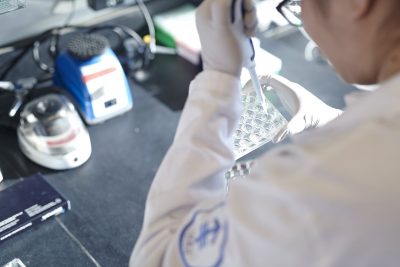September is Childhood Cancer Awareness Month. While cancer in children does not occur as often as in adults, research on childhood cancers is an integral part of the world’s biomedical community effort to study and fight cancer. Researchers across the globe work on understanding childhood cancers and developing new therapies.
New research has just been published on Atypical teratoid rhabdoid tumor (ATRT). ATRT is a very rare and difficult to treat form of brain cancer occurring most of the time in three-year-old children or younger.
The new study led by an international team of researchers focused on the inactivation of one single gene, called SMARCB1, and its interaction with the development of ATRT. Previous studies have shown the link between the inactivation of the gene SMARCB1 and ATRT, but this new study demonstrates how the loss of SMARCB1 might disrupt neural development and lead to tumor growth.
The study was published in the journal Genes & Development. The authors hope that this discovery will help with developing targeted therapies.

